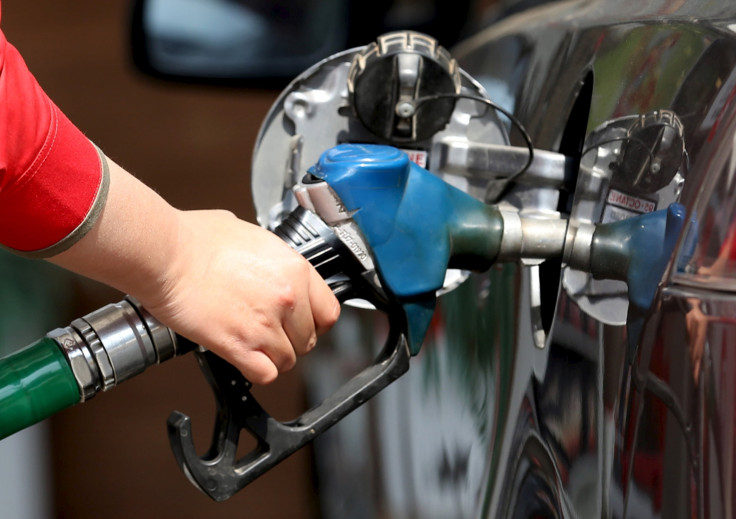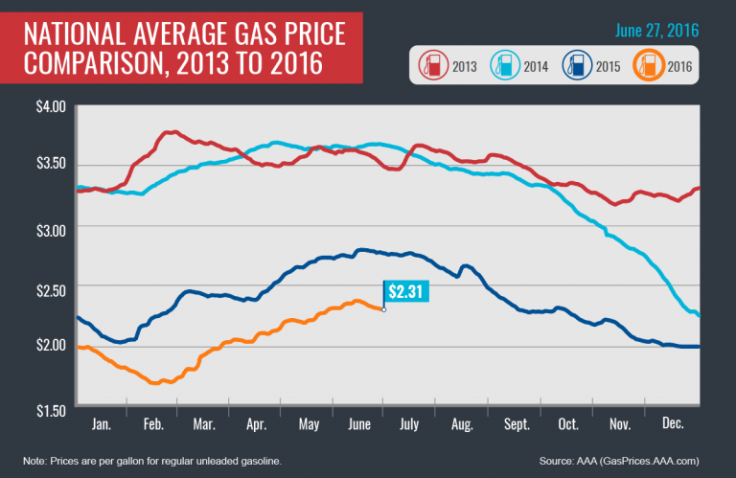Fourth Of July 2016: Gas Prices To Hit Lowest Level Since 2005 This Independence Day Weekend

What’s more American than fireworks? Try a tank full of gasoline and a big car barreling down the interstate. More Americans than ever are expected to travel this Independence Day weekend, encouraged by the cheapest holiday gas prices in over a decade. And they’re more likely to drive a fuel-guzzling car as they do, analysts said.
The U.S. average gasoline price could hit $2.27 per gallon on the Fourth of July, down roughly 50 cents from the same time a year ago, according to GasBuddy.com, a popular online gasoline-price tracker. The last time Independence Day weekend prices dropped that low was in 2005.
Gas prices have dipped over the last two years due to falling crude oil prices, the result of abundant global supplies and weaker-than-expected demand. But even as U.S. crude output shows signs of slowing and consumers guzzle more fuel, gasoline prices have stayed relatively low. U.S. crude inventories are high, and refinery production is picking up, leaving the nation with more supply than demand.
Cheaper fuel costs have saved Americans around $20 billion so far this year compared to the same period in 2015, making travel more affordable than in recent years, AAA said this week. The motor club projected nearly 43 million Americans would travel this holiday weekend, with the majority of people hitting the highway.

“We are well on our way for 2016 to be a record-breaking year for summertime travel,” Marshall Doney, president and CEO of the motor club AAA, said in a statement. “This trend is welcome news for the travel industry and a sign that Americans are taking to our nation’s highways and skies like never before.”
The trend is less rosy for the environment, however. As Americans drive more miles, they’re increasingly doing so in bigger cars, pickup trucks and sport utility vehicles, favoring the bulkier machines over small cars, hybrids and electric vehicles.
So far this year, about 75 percent of the people who have traded in a hybrid or electric car to a dealer have replaced it with an all-gas car, according to car shopping and research site Edmunds.com. That’s up from just 18 percent of trade-ins in 2015. Those all-gas cars, pickups and SUVs account for about 16.2 percent of all greenhouse gas emissions produced in the U.S., the University of Michigan’s Transportation Research Institute estimated.
Buying a more fuel-efficient car is among the single most effective actions Americans can take to help fight climate change, Andrew Jones, a co-director of Climate Interactive, a think tank , recently told the New York Times. Instead, he added, “We’re doing the opposite.”
© Copyright IBTimes 2024. All rights reserved.



















